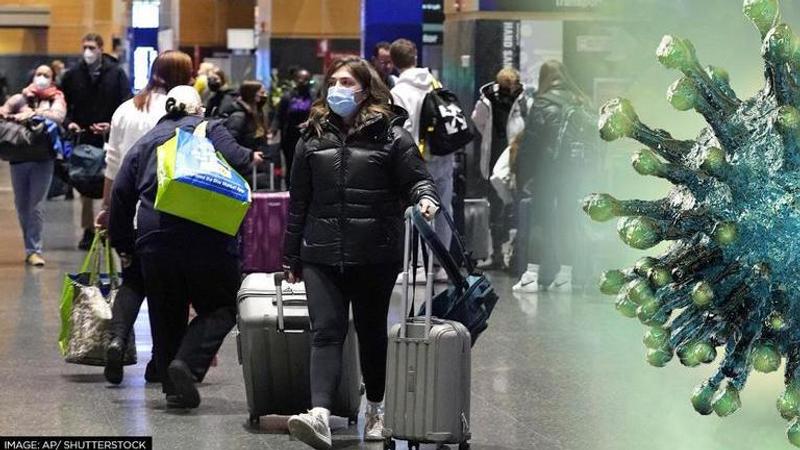Published 15:19 IST, January 8th 2022
Planning to travel abroad? Check SOPs in different countries amid Omicron spike
Omicron has completely changed the scenario of traveling with every country having either prohibited international flights or tightened COVID regulations.

As the Omicron scare is rising all across the world, several nations have ramped up their COVID-19 measures to curb the transmission of the ‘highly mutated’ variant along with its prior strain Delta, which is still dominant. Even though the COVID restrictions were relaxed following a year of Pandemic for travellers visiting countries, however, the emergence of Omicron has completely changed the scenario with approximately every country having either prohibited international flights or tightened regulations.
Despite the fact that studies have suggested the new COVID-19 strain Omicron appears to be less serious than prior COVID-19 variations, scientists believe that Omicron's spread would overload healthcare systems around the globe due to a large number of cases. Thus, people are strictly advised to follow all the travel guidelines to have a safe and healthy visit in the countries.
Here is a list of nations with travel restrictions and guidelines
1. United Kingdom
As per the new guidelines, any fully jabbed travellers who have obtained two COVID vaccine doses and passengers under the age of 18, will no longer be required to complete pre-departure testing two days prior to flying. However, travellers would still have to undergo a PCR test when they arrive, but they would not have to go through a self-isolate whilst waiting for the results.
Further, passengers can take a cheaper lateral flow testing (LFT) rather than a PCR test commencing at 04:00 GMT on Sunday, January 9, BBC reported. Even if people are only traveling through the UK, inoculated passengers must fill up and submit an online passenger locator application no later than 48 hours before arrival.
2. United States
The new United States Centers for Disease Control and Prevention guidelines which were released on January 4 states that all non-US nationals, as well as non-US immigrants arriving at the nation, must produce documentation of having completely vaccinated against COVID-19. An individual must produce a negative COVID-19 test result which has been conducted within one day before departure. For the next seven days, the person must stay at home or in a hotel room for self-quarantine.
3. Australia
With a few exemptions, Australian borders have been closed for international travellers. If a person is not given an exemption, as per information published on the government website, he should cancel his trip since he will not be allowed to board an aircraft to Australia.
4. China
Travellers will have to show two negative tests which include PCR and antibody tests, according to the revised criteria. Both tests must be completed before 48 hours of departure. In addition to this, the Chinese government has mandated that the COVID vaccine be obtained nearly 14 days prior to arrival. The individual must apply for a visa in advance and provide their immunisation status, as well as the findings of the negative test, upon arrival.
5. France
People from nations and regions on the "green" list are not required to provide proof of urgent causes in order to visit France. Anyone visiting French territory above the age of 12 must provide a negative PCR or antigen test that is less than 24 or 48 hours ago. The immunisation status of their parents or associated guardians will be examined for unvaccinated youngsters under the age of 12.
6. Germany
As per the Guidelines issued in the month of December, visitors entering Germany from non-high-risk countries must present a COVID-19 negative test, evidence of immunisation, or medical records proving COVID-19 recovery. Further, passengers arriving in Germany from high-risk nations where the Omicron variety has spread are subject to extra requirements, including a 10-day quarantine. However, if a negative COVID-19 result is provided on the fifth day, the self-isolation can be lifted.
(Image: AP/ Shutterstock)
Updated 15:19 IST, January 8th 2022




